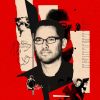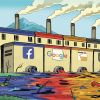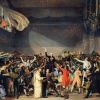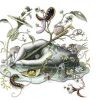-
 +33 +7
+33 +7Protein mania: the rich world’s new diet obsession
The long read: If you’re worrying about the amount of protein in your diet, then you’re almost certainly eating more than enough
-
 +3 +1
+3 +1‘Nobody Is Going to Believe You’
The Bohemian Rhapsody director Bryan Singer has been trailed by accusations of sexual misconduct for 20 years. Here, his alleged victims tell their stories.
-
 +17 +4
+17 +4If Dr. King Came Back Today, He'd Be Heartbroken—and Energized
When the rest of America is celebrating Martin Luther King Jr. Day on Monday, Alabama and Mississippi are observing a different holiday: Martin Luther King Jr./Robert E. Lee Day. And for a while, those states weren’t alone—Arkansas ended its joint holiday little more than a year ago. Bundling a holiday celebrating our nation’s most beloved civil rights leader with one for a man who fought to maintain slavery is one of the purest indications that our nation hasn’t truly reckoned with its history, so I talked to someone who is: lawyer, activist, and MacArthur “genius” Bryan Stevenson.
-
 +34 +10
+34 +10The World Is Choking on Digital Pollution
Tens of thousands of Londoners died of cholera from the 1830s to the 1860s. The causes were simple: mass quantities of human waste and industrial contaminants were pouring into the Thames, the central waterway of a city at the center of a rapidly industrializing world. The river gave off an odor so rank that Queen Victoria once had to cancel a leisurely boat ride. By the summer of 1858, Parliament couldn’t hold hearings due to the overwhelming stench coming through the windows.
-
 +20 +2
+20 +2Malevolent soft power, AI, and the threat to democracy
In the space of less than a decade, the world of social media has gone from being an enabler of to a threat to democracy. While the internet can still mobilize large numbers of people to political action, it can also spew false information about candidates, suppress the vote, and affect the voter rolls and the election machinery of the state.
-
 +26 +8
+26 +8Are we city dwellers or hunter-gatherers?
For centuries, we have been telling ourselves a simple story about the origins of social inequality. For most of their history, humans lived in tiny egalitarian bands of hunter-gatherers. Then came farming, which brought with it private property, and then the rise of cities which meant the emergence of civilisation properly speaking. Civilisation meant many bad things (wars, taxes, bureaucracy, patriarchy, slavery) but also made possible written literature, science, philosophy and most other great human achievements.
-
 +2 +1
+2 +1120 Movies, $13 Billion in Box Office: How Samuel L. Jackson Became Hollywood's Most Bankable Star
The box office king and Trump golf antagonist beat a crack addiction to build a film career unrivaled in modern stardom, and the 70-year-old 'Glass' actor aims to work well into his 80s — if Marvel and the rest of Hollywood can afford him: "I'm a gunslinger now."
-
 +21 +4
+21 +4How your voice hides clues about your love life
Let’s say your relationship is on the rocks. You’ve been trying to work things out together in couples’ counselling, but ultimately, you want to know if it is worth the effort. Will things get better, or are they doomed to fall apart?
-
 +5 +2
+5 +2The Shady Link Between Sunscreen and Your Health
These are dark days for supplements. Although they are a $30-plus billion market in the United States alone, vitamin A, vitamin C, vitamin E, selenium, beta-carotene, glucosamine, chondroitin, and fish oil have now flopped in study after study. If there was one supplement that seemed sure to survive the rigorous tests, it was vitamin D. People with low levels of vitamin D in their blood have significantly higher rates of virtually every disease and disorder you can think of: cancer, diabetes, obesity, osteoporosis, heart attack, stroke, depression, cognitive impairment, autoimmune conditions, and more.
-
 +15 +2
+15 +28 Predictions for What the World Will Look Like in 20 Years
This month, we are all tentatively dipping our toes into the New Year, wondering what horrors and highlights might await us in 2019 — the year that served as a setting, you may remember, for Blade Runner, Akira, and Running Man, three of the most iconic future-casting movies ever made and now divergent choose-your-own-dystopia visions of the years ahead (perhaps some more plausible than others).
-
 +13 +1
+13 +1Intellectual humility: the importance of knowing you might be wrong
Julia Rohrer wants to create a radical new culture for social scientists. A personality psychologist at the Max Planck Institute for Human Development, Rohrer is trying to get her peers to publicly, willingly admit it when they are wrong. To do this, she, along with some colleagues, started up something called the Loss of Confidence Project. It’s designed to be an academic safe space for researchers to declare for all to see that they no longer believe in the accuracy of one of their previous findings. The effort recently yielded a paper that includes six admissions of no confidence. And it’s accepting submissions until January 31.
-
 +31 +8
+31 +8How I let drinking take over my life
The long read: Five years after his last taste of alcohol, William Leith tries to understand its powerful magic
-
 +17 +5
+17 +5Machine learning can offer new tools, fresh insights for the humanities
Truly revolutionary political transformations are naturally of great interest to historians, and the French Revolution at the end of the 18th century is widely regarded as one of the most influential, serving as a model for building other European democracies. A paper published last summer in the Proceedings of the National Academy of Sciences, offers new insight into how the members of the first National Constituent Assembly hammered out the details of this new type of governance.
-
 +13 +2
+13 +2J.R.R. Tolkien on Fairy Tales, Language, the Psychology of Fantasy, and Why There’s No Such Thing as Writing “For Children”
“I do not believe that I have ever written a children’s book,” the great Maurice Sendak once said in an interview. “I don’t write for children,” he told Colbert. “I write — and somebody says, ‘That’s for children!’” This sentiment — the idea that designating certain types of literature as “children’s” is a choice entirely arbitrary and entirely made by adults — has since been eloquently echoed by Neil Gaiman, but isn’t, in fact, a new idea.
-
 +9 +2
+9 +2Inside the Raspberry Pi: The story of the $35 computer that changed the world
There's nothing like the prospect of being hanged in the morning to focus the mind." Eben Upton is describing the weight of public expectation that fell on his shoulders after the prototype of the $35 Raspberry Pi computer he co-created was revealed online in May 2011. After five years of tinkering with the board's design in relative anonymity, suddenly the number of people aware of the project exploded, with the YouTube video of the early Pi racking up 600,000 views in just two days.
-
 +3 +1
+3 +1We thought the Incas couldn’t write. These knots change everything
The Incas left no doubt that theirs was a sophisticated, technologically savvy civilisation. At its height in the 15th century, it was the largest empire in the Americas, extending almost 5000 kilometres from modern-day Ecuador to Chile. These were the people who built Machu Picchu, a royal estate perched in the clouds, and an extensive network of paved roads complete with suspension bridges crafted from woven grass. But the paradox of the Incas is that despite all this sophistication they never learned to write.
-
 +28 +4
+28 +4A $21,000 Cosmetology School Debt, and a $9-an-Hour Job
When she was in cosmetology school, Tracy Lozano had a love-hate relationship with weekday mornings. Those predawn moments were the only time she saw her infant daughter awake, and she savored them. When the time came to hand the baby to her own mother, she said in a recent interview, she would stifle her tears, letting them roll only when she had closed the door behind her.
-
 +3 +1
+3 +1How Does a Writer Put a Drug Trip Into Words?
Soon after I set out to write a book about psychedelics, it became obvious what I would have to do: Trip, and then write about what it was like. True, I could have relied on the testimony of others, but that seemed less than satisfying. Ever since the 11-year-old me read George Plimpton’s account of playing football in “Paper Lion” (1966), I’ve believed that the most absorbing way to convey an experience is to have it yourself and then try to describe it from the inside. Best of all is to have it yourself for the first time, which is the only time the comprehensive wonder of any experience is available to us.
-
 +26 +4
+26 +4The case for "conditional optimism" on climate change
Is there any hope on climate change, or are we just screwed? I hear this question all the time. When people find out what I do for a living, it is generally the first thing they ask. I never have a straightforward or satisfying answer, so I usually dodge it, but in recent years it has come up more and more often. So let’s tackle it head on. In this post, I will lay out the case for pessimism and the case for (cautious) optimism, pivoting off a new series of papers from leading climate economists.
-
 +14 +3
+14 +3The 'Future Book' Is Here, but It's Not What We Expected
The future book was meant to be interactive, moving, alive. Its pages were supposed to be lush with whirling doodads, responsive, hands-on. The old paperback Zork choose-your-own-adventures were just the start. The Future Book would change depending on where you were, how you were feeling. It would incorporate your very environment into its story—the name of the coffee shop you were sitting at, your best friend’s birthday. It would be sly, maybe a little creepy.
Submit a link
Start a discussion




















